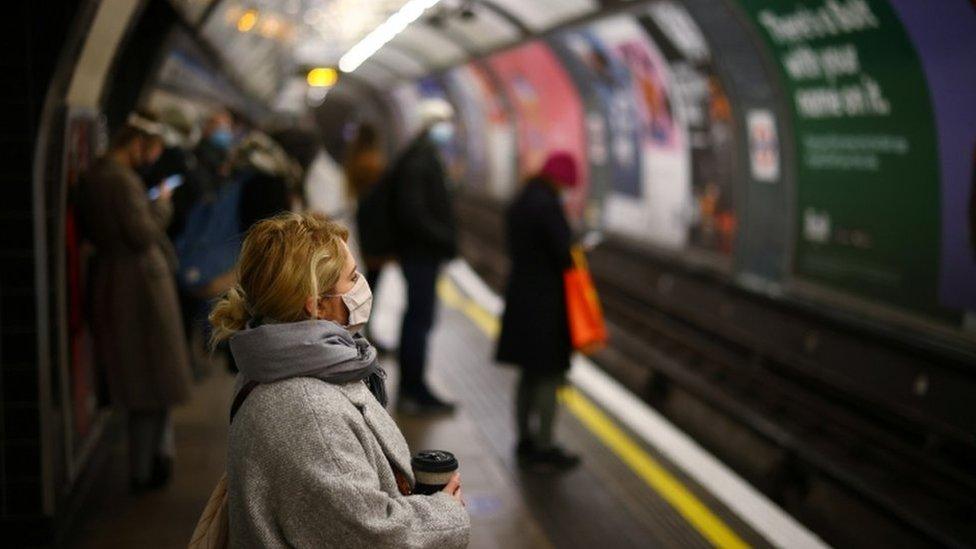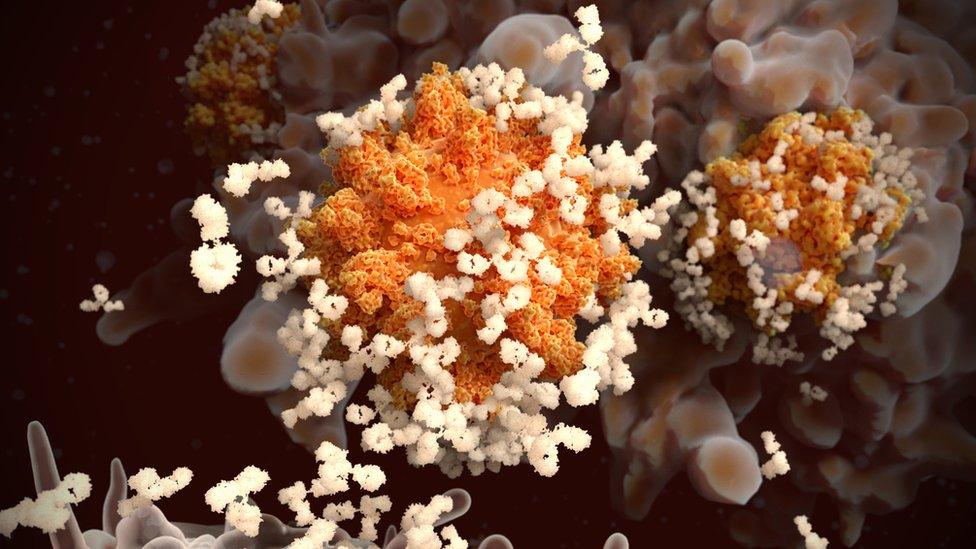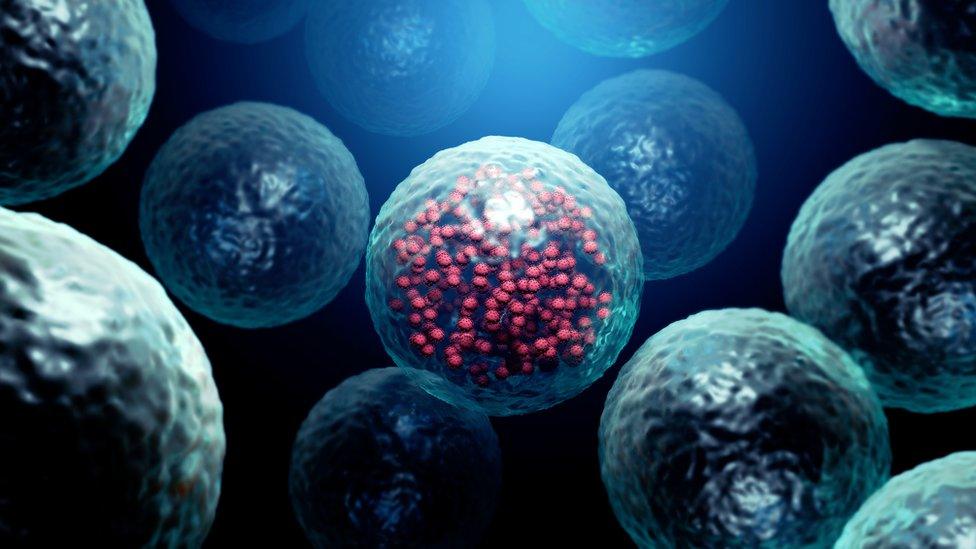Past Covid-19 infection may provide 'months of immunity'
- Published

Most people who have had Covid-19 are protected from catching it again for at least five months, a study led by Public Health England shows.
Past infection was linked to around a 83% lower risk of getting the virus, compared with those who had never had Covid-19, scientists found.
But experts warn some people do catch Covid-19 again - and can infect others.
And officials stress people should follow the stay-at-home rules - whether or not they have had the virus.
'Save lives'
Prof Susan Hopkins, who led the study, said the results, external were encouraging, suggesting immunity lasted longer than some people feared, but protection was by no means absolute.
It was particularly concerning some of those reinfected had high levels of the virus - even without symptoms - and were at risk of passing it on to others, she said.
Prof Susan Hopkins from Public Health England said immunity from having Covid-19 is "not 100% protective"
"This means even if you believe you already had the disease and are protected, you can be reassured it is highly unlikely you will develop severe infections but there is still a risk that you could acquire an infection and transmit to others," she added.
"Now more than ever, it is vital we all stay at home to protect our health service and save lives."
Covid immunity: Can you catch it twice?
From June to November 2020, almost 21,000 healthcare workers across the UK were regularly tested to see whether they:
currently had the coronavirus
had had it previously
Of those who had no antibodies to the virus, suggesting they may have never had it, 318 developed potential new infections within this timeframe.
But among the 6,614 with antibodies, this figure was just 44 potential new infections.
Researchers received various different pieces of evidence suggesting these people had become re-infected - including new symptoms more than 90 days after their first infection, new positive swab tests and blood tests.
Some tests are still being run and researchers say their results will be updated as they come in.
'Likely boost'
Scientists will continue to monitor the healthcare workers for 12 months to see how long immunity lasts.
They will also look closely at cases with the new variant - which was not widespread at the time of this first analysis - and observe the immunity of participants who receive the vaccine.
Can you become immune to coronavirus?
Dr Julian Tang, a virus expert at the University of Leicester, said the results were reassuring for healthcare workers.
"Having the vaccine after recovering from Covid-19 is not an issue... and will likely boost the natural immunity," he added.
"We also see this with the seasonal flu vaccine.
"So hopefully the results from this paper will reduce the anxiety of many healthcare-worker colleagues who have concerns about getting Covid-19 twice."
In other developments:
A top scientist has said the coronavirus growth rate is slowing in the UK and the number of infections are starting to level off in some areas. But Prof Neil Ferguson has warned the overall death toll would exceed 100,000
Some High Street pharmacies in England will start vaccinating people from priority groups on Thursday, with 200 providing jabs in the next two weeks
England's new testing rule for arrivals has been pushed back by a few days to give travellers more time to prepare, the government has said

TESTING: How do I get a virus test?
LOOK-UP TOOL: How many cases in your area?
YOUR QUESTIONS: We answer your queries
THE R NUMBER: What it means and why it matters

- Published20 November 2020

- Published2 November 2020
